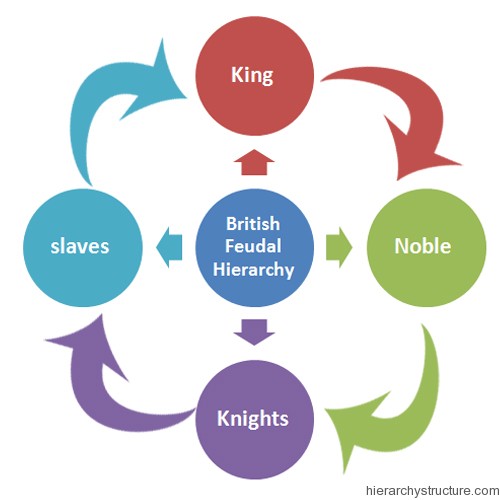British feudal hierarchy came into existence in 1066 by William I also known as William the conqueror. He defeated the British army in the year 1066 at the battle of Hastings which was lead by the king Harold. After defeating the king, William I tried to centralize the power so that he could not be defeated by any other king.
So to gain control over the England and to truly become the king of the England, he practiced what we call British feudalism which made a huge impact in the history of England Feudal Hierarchy for many centuries. There were four major causes which became the reason behind the origination of British feudal hierarch and they were:
- William I was still the duke of Normandy and so he had to return to his native place to maintain his control over there.
- Since William I was a foreigner and hence not so popular with the British people.
- Ruling each and every part of England physically was like impossible.
- The travelling in the eleventh century was both slow and difficult.
These reasons jointly made a way for the rise of British feudalism which helped William I to control the England and made people loyal towards his services. British feudalism was based on the granting of land to people in exchange of their british military services. Life under British feudalism demanded an owed acquiescence to the king along with the immediate royal superiors. The British feudal hierarchy was then finally concluded as below:

- The supreme power holder was the King and no man was allowed to betray the king. He possessed all the land of the kingdom and enjoyed all the privileges. They lead the most luxurious lives.
- The king gave large piece of land to his loyal Noble men who helped him to conquer the battle and were always ready to sacrifice their life for the sake of king. This land was as large as our countries are these days. These noble men were referred as tenants in chief and possessed powers more than the country men but less than the king. They were bound to take a royal oath to the king to always serve the king and work according to his command.
- Since the land was quite very big to govern, the nobles further granted their lands to trusted Knights (Norman only) who also helped the king to conquer the battle. Each knight was provided a large segment of the land to govern but only after taking a royal oath to the nobles and ultimately to the king to serve their lifetime loyalty. These knights were refereed as sub tenants in chief.
- The last one in the British feudal hierarchy which resided at the bottom were the conquered English who were now a kind of slaves for the upper class and had to do whatever they were told to do and if failed were to pay the brutal price for their disobedience.
